Christopher D Manning
Mapping the Increasing Use of LLMs in Scientific Papers
Apr 01, 2024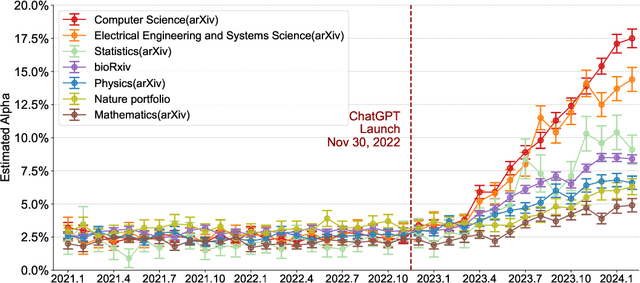
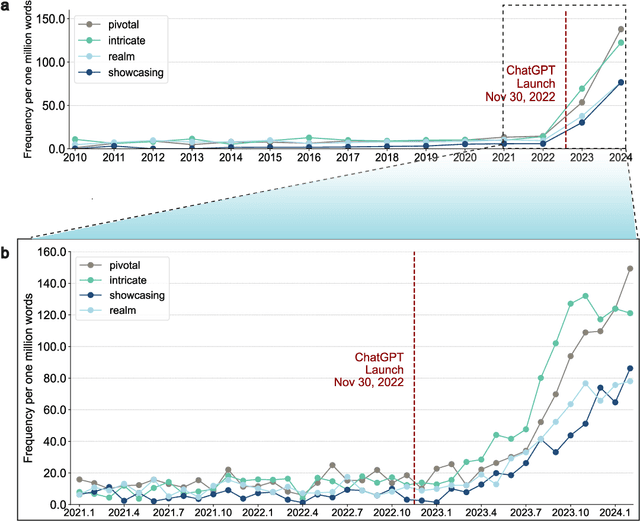
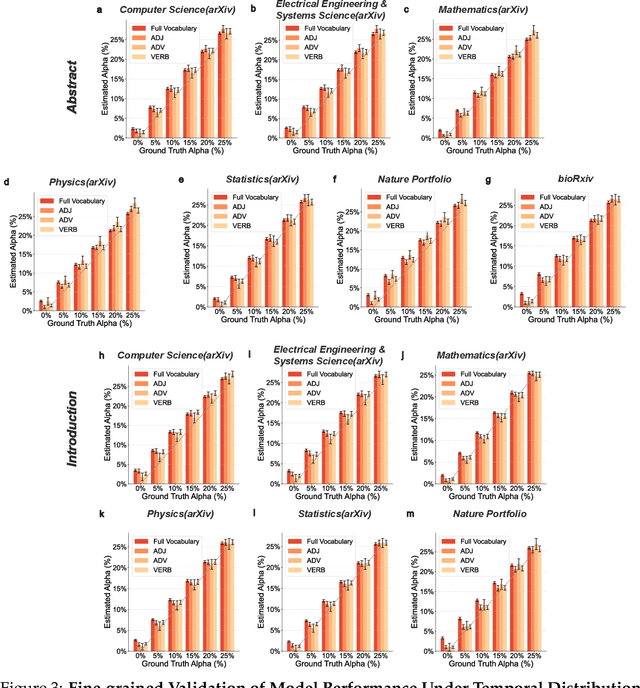
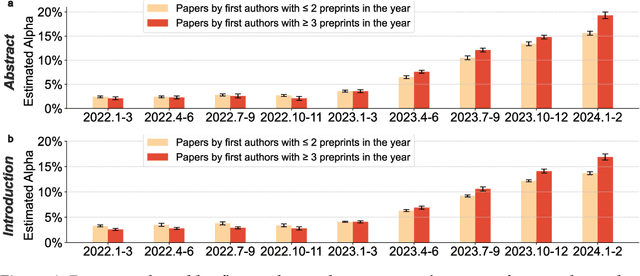
Abstract:Scientific publishing lays the foundation of science by disseminating research findings, fostering collaboration, encouraging reproducibility, and ensuring that scientific knowledge is accessible, verifiable, and built upon over time. Recently, there has been immense speculation about how many people are using large language models (LLMs) like ChatGPT in their academic writing, and to what extent this tool might have an effect on global scientific practices. However, we lack a precise measure of the proportion of academic writing substantially modified or produced by LLMs. To address this gap, we conduct the first systematic, large-scale analysis across 950,965 papers published between January 2020 and February 2024 on the arXiv, bioRxiv, and Nature portfolio journals, using a population-level statistical framework to measure the prevalence of LLM-modified content over time. Our statistical estimation operates on the corpus level and is more robust than inference on individual instances. Our findings reveal a steady increase in LLM usage, with the largest and fastest growth observed in Computer Science papers (up to 17.5%). In comparison, Mathematics papers and the Nature portfolio showed the least LLM modification (up to 6.3%). Moreover, at an aggregate level, our analysis reveals that higher levels of LLM-modification are associated with papers whose first authors post preprints more frequently, papers in more crowded research areas, and papers of shorter lengths. Our findings suggests that LLMs are being broadly used in scientific writings.
Deep Bidirectional Language-Knowledge Graph Pretraining
Oct 19, 2022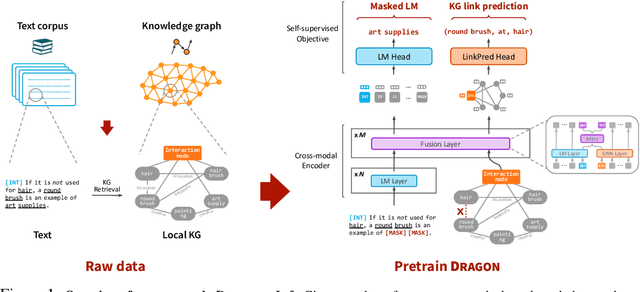



Abstract:Pretraining a language model (LM) on text has been shown to help various downstream NLP tasks. Recent works show that a knowledge graph (KG) can complement text data, offering structured background knowledge that provides a useful scaffold for reasoning. However, these works are not pretrained to learn a deep fusion of the two modalities at scale, limiting the potential to acquire fully joint representations of text and KG. Here we propose DRAGON (Deep Bidirectional Language-Knowledge Graph Pretraining), a self-supervised approach to pretraining a deeply joint language-knowledge foundation model from text and KG at scale. Specifically, our model takes pairs of text segments and relevant KG subgraphs as input and bidirectionally fuses information from both modalities. We pretrain this model by unifying two self-supervised reasoning tasks, masked language modeling and KG link prediction. DRAGON outperforms existing LM and LM+KG models on diverse downstream tasks including question answering across general and biomedical domains, with +5% absolute gain on average. In particular, DRAGON achieves notable performance on complex reasoning about language and knowledge (+10% on questions involving long contexts or multi-step reasoning) and low-resource QA (+8% on OBQA and RiddleSense), and new state-of-the-art results on various BioNLP tasks. Our code and trained models are available at https://github.com/michiyasunaga/dragon.
 Add to Chrome
Add to Chrome Add to Firefox
Add to Firefox Add to Edge
Add to Edge